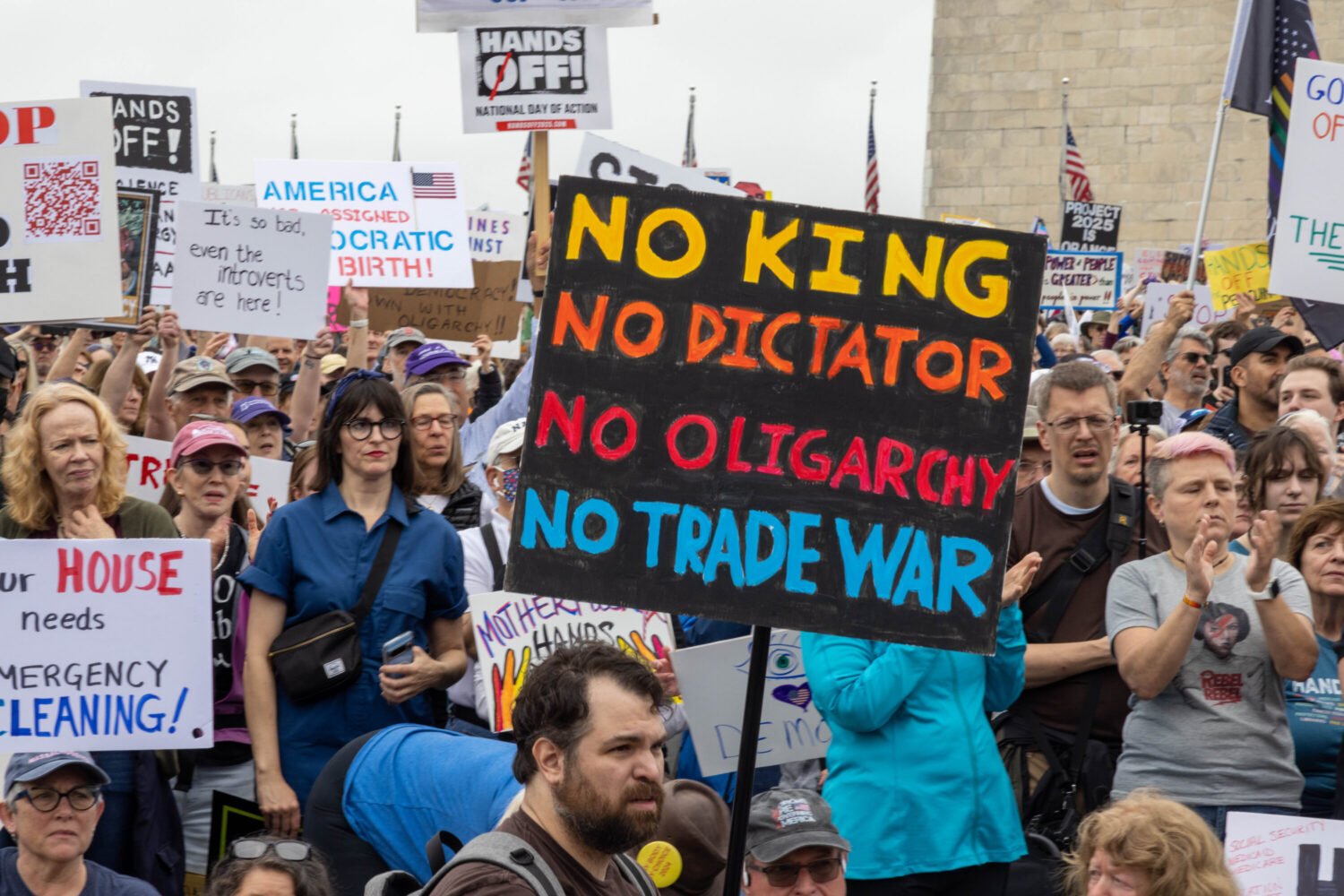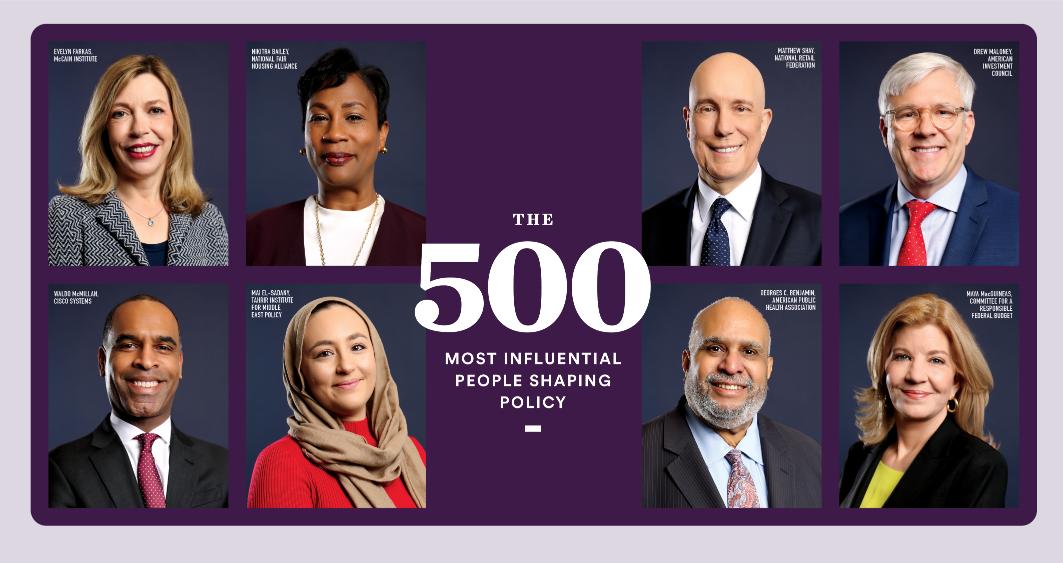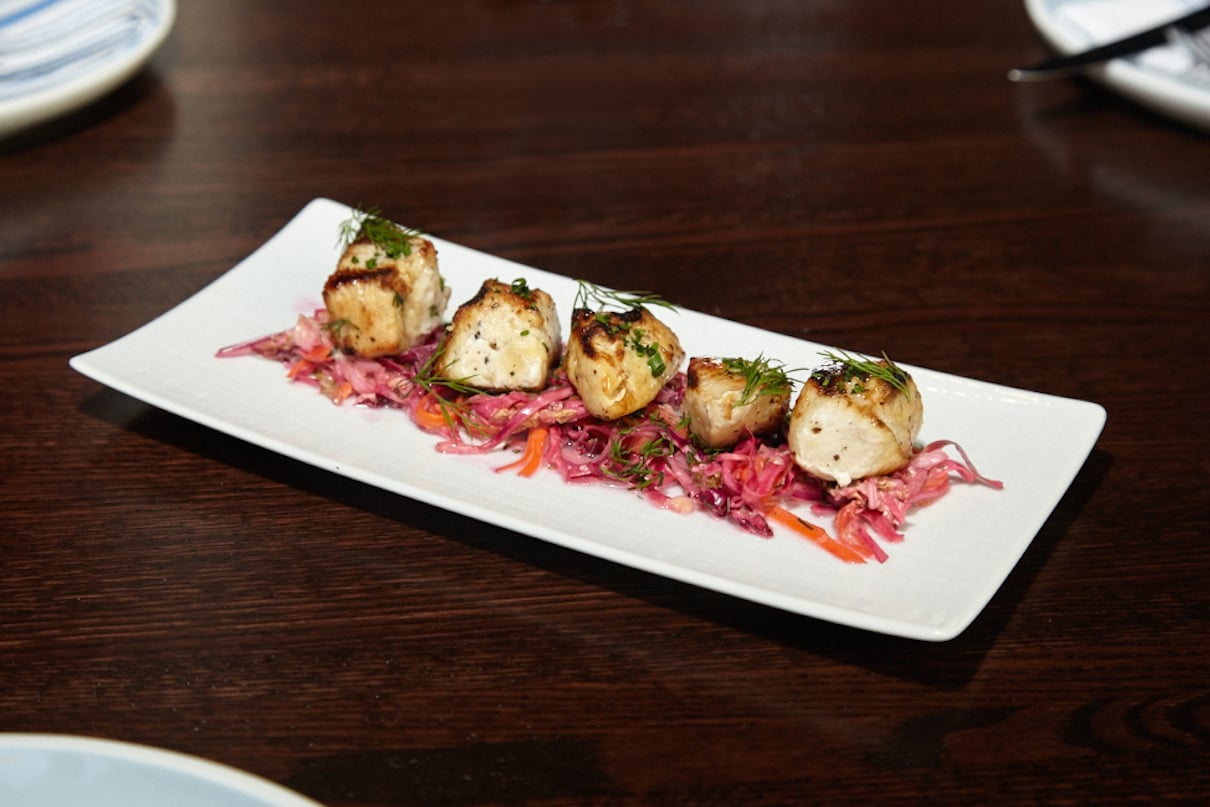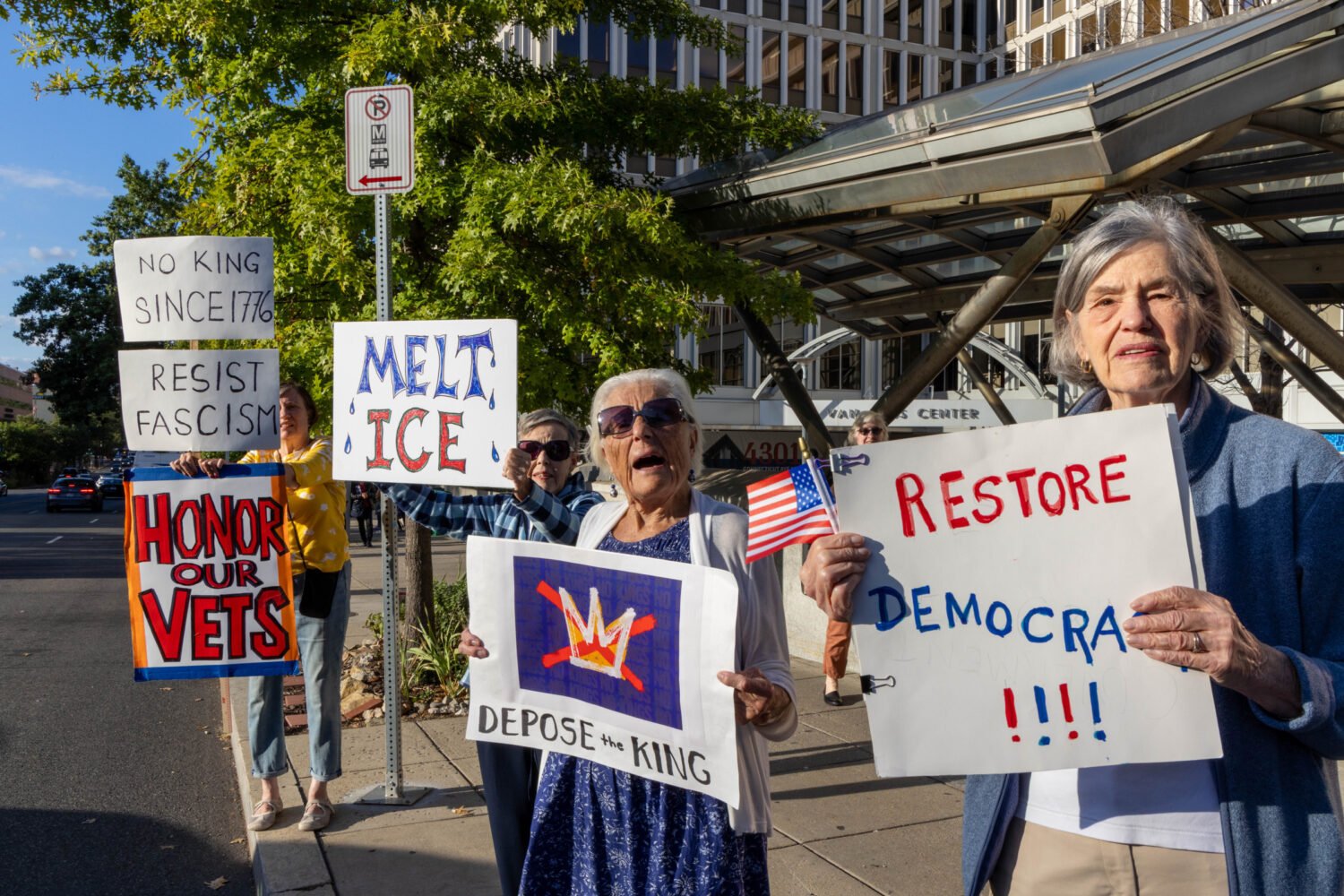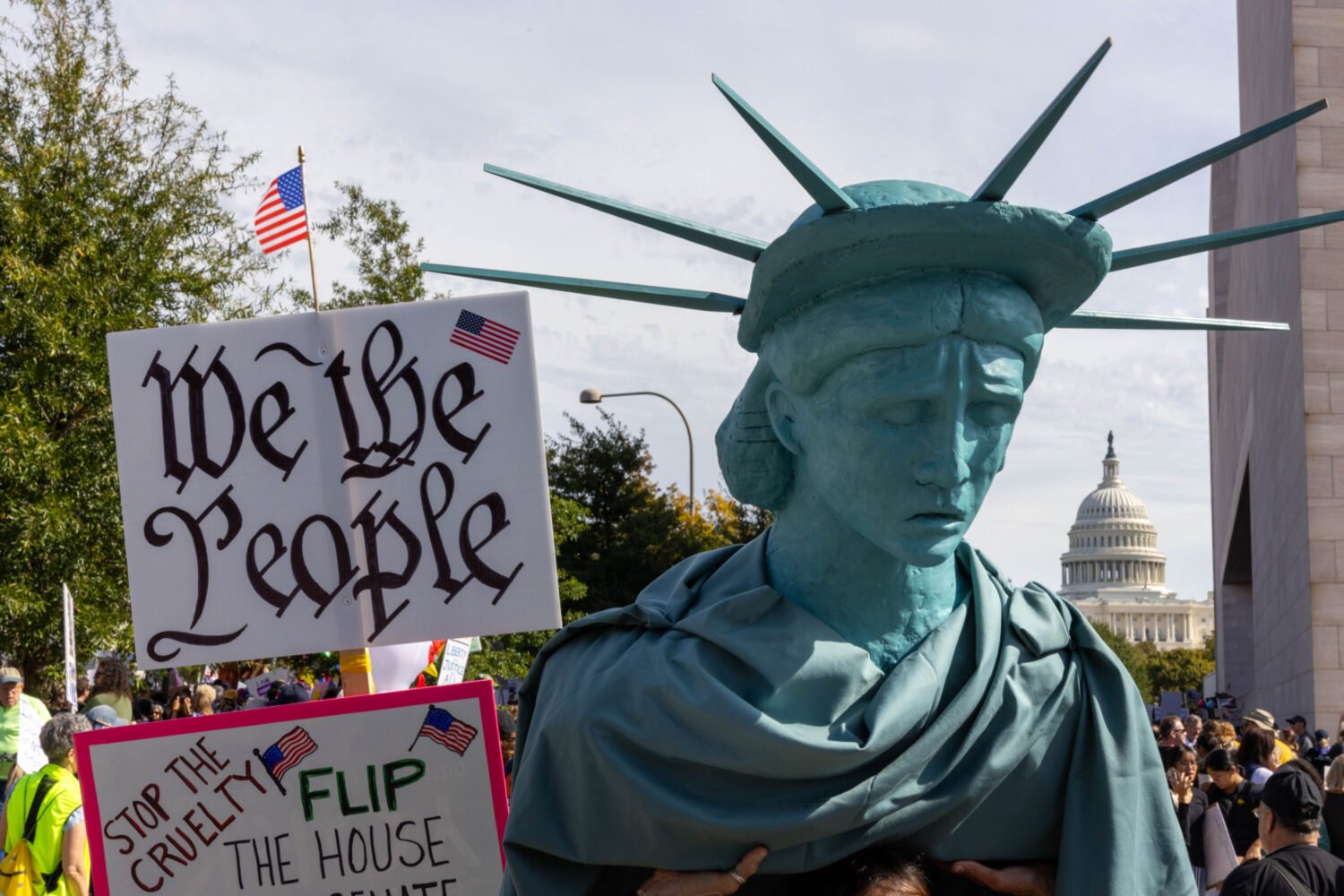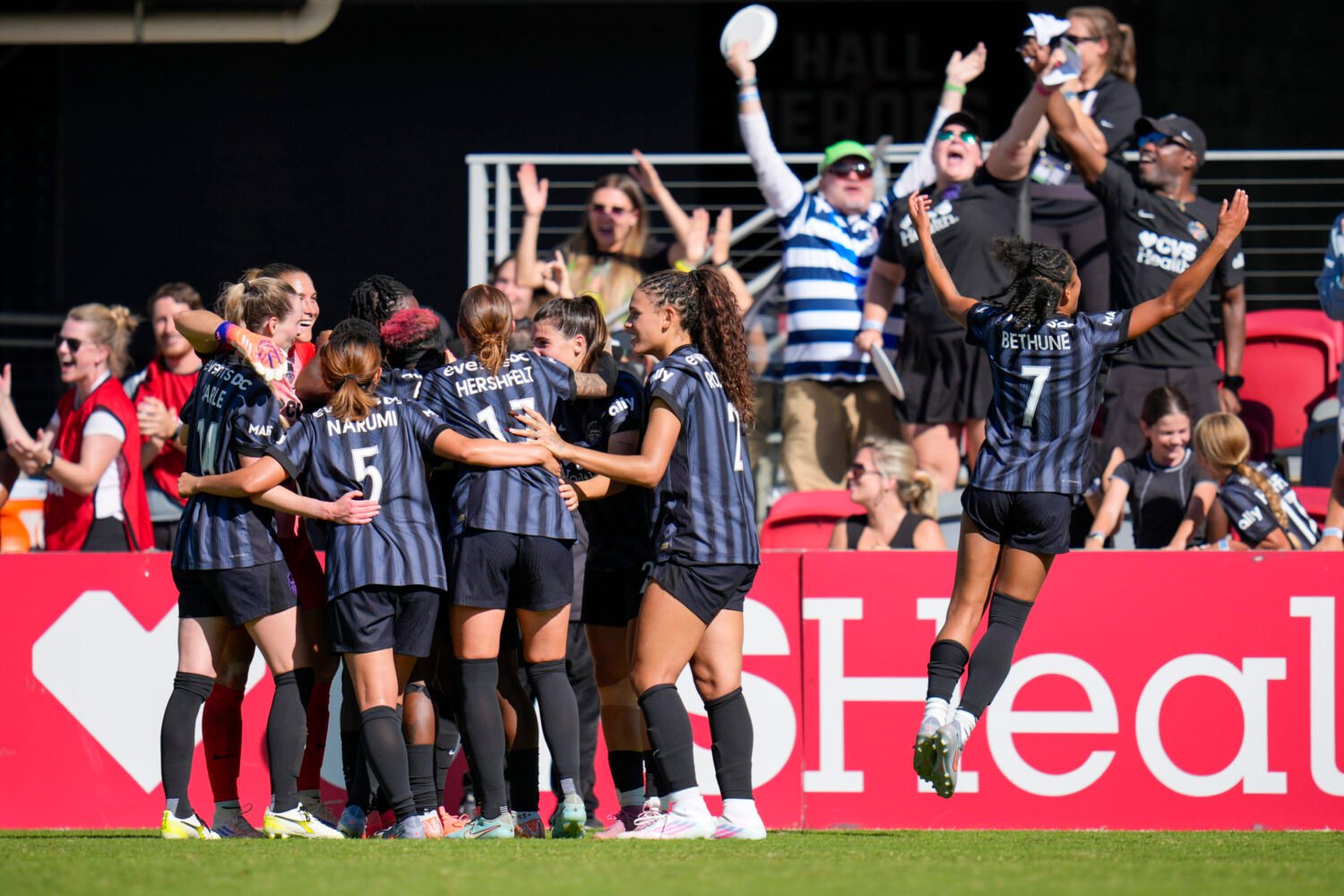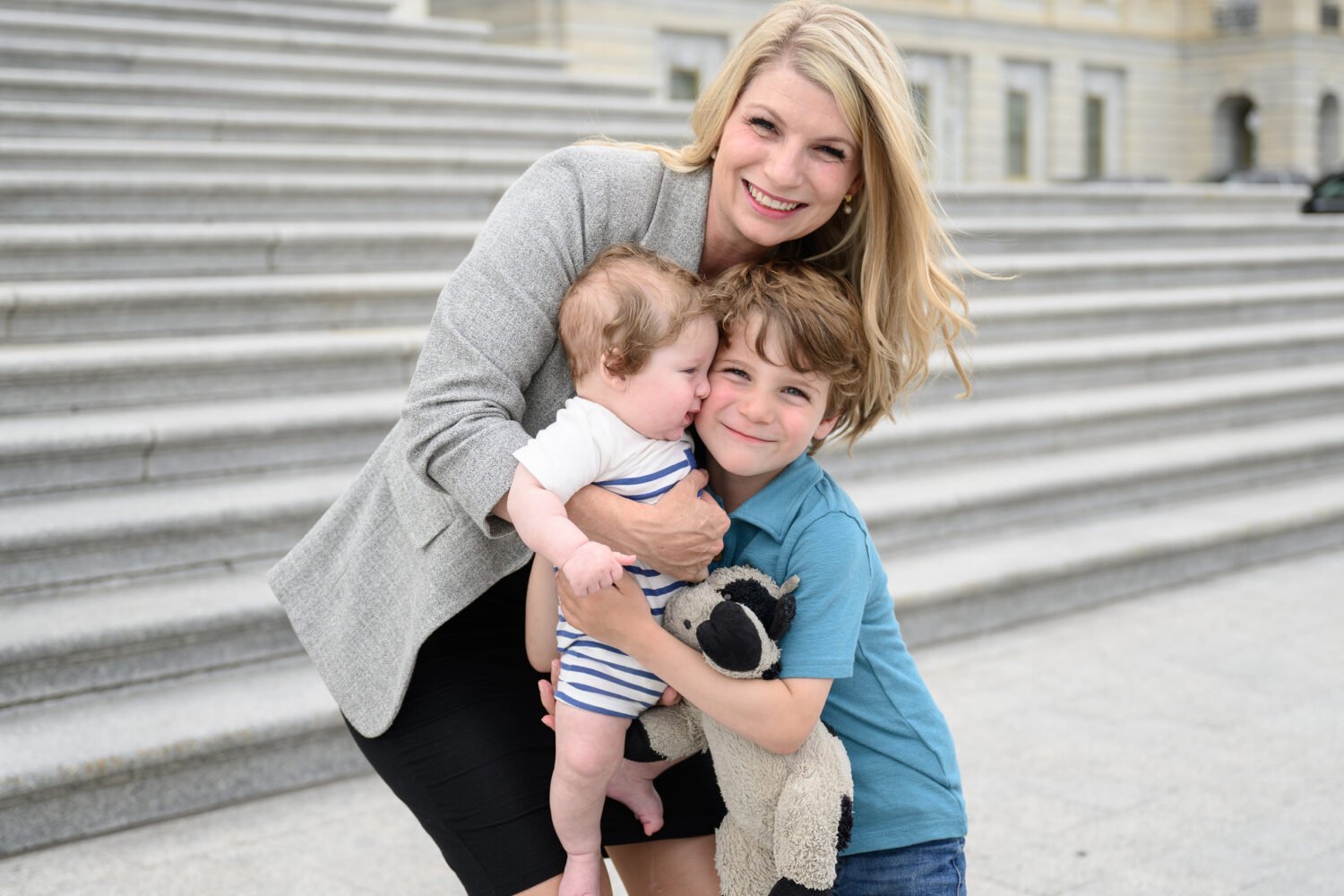Speculation swirled around Andy Shallal's latest and most ambitious restaurant long before it opened in September. It was not the anticipation of foodies awaiting the arrival of a big-name chef. It was not buzz.
The restaurant/lounge/coffeehouse/bookstore/performance space at the base of the Langston Lofts at 14th and V streets, Northwest, was being derided as yet another interloper in a once-black neighborhood that had crossed the line of revitalization into gentrification. Shallal, it was said, was trying to "drive out poor black people." There were rumors that Shallal was intent on shutting down the Reeves Recovery Center, a facility catty-corner from the new place where meetings are held for drug and alcohol addicts.
But where others might have plugged their ears and plowed ahead, or become defensive, Shallal was philosophical. The fact that Busboys and Poets was inciting this kind of talk even before it had removed the brown paper from its windows proved that his instincts in opening the place had been sound.
What the neighborhood needed was not another hip gathering spot with neon-colored, double-digit-priced drinks. What it needed was a place that grappled with the changes in the area–and the fears they engendered among blacks and whites alike. Not a restaurant exactly. Or not a restaurant exclusively. Rather, a vibrant and inclusive meeting place that might bridge the old U Street with the new U Street. In fact, Shallal's early designs of the space had discrete areas–discussion rooms–to bring groups of people together to talk, debate, and argue.
Still, it pained him to think that the long-simmering hostilities he had hoped to give a proper forum would be aimed at him.
Gentrifier. No matter how good his intentions, no matter how many qualifiers he deserved–the reluctant gentrifier, the anti-gentrifier–it was hard to rid himself of the tag. Once branded, always branded.
No, he would never be an "us"–he was an immigrant, an Iraqi–but it might not have stung so much if he hadn't already worked so hard to avoid being painted as a "them."
"Trench work" is how the 50-year-old Shallal characterized the process when I sat down with him in March at Mimi's American Bistro in Dupont Circle as construction was getting underway on V Street.
Unwilling to presume that his standing in DC's activist community presaged a wider embrace among blacks, he had embarked on a methodical outreach.
Shallal was a student of conflict management–he'd put this skill to use in the Peace Café discussions that followed some of the thornier performances at Theater J, and, later, in the Arab-Jew dialogues he conducted the first Sunday of the month at Mimi's–and he understood the difficulty of establishing credibility among people skeptical of your motives. It could not be done with a broad brush; it required a hundred, a thousand, little flicks of the pen.
"What can I do," he asked himself, "to eliminate the possibility of not being welcomed?"
And so for months he went about laying his roots, meeting with community leaders, businessmen, politicians, neighborhood advisory groups, church organizations, schools, and radio stations.
Spurning Riggs Bank for a loan, he went through the black-owned Industrial Bank at 11th and U streets to secure funding. It strapped him to do so, but he mortgaged his restaurants to buy the property outright, hoping to communicate his desire not simply to make money but to make good on his promise to become part of a community. He planned to put a sign in the window telling people that the restaurant was financed by Industrial Bank.
He had set aside space for a bookstore in the front of the restaurant. Teaching for Change–a nonprofit that was, he noted, "three-fourths black"–would run it. He would not charge the group rent until it began to turn a profit.
It was not merely the result that he wanted his new neighbors to see but how he got there–the care and thought that had gone into every step of the project, the chains of connection.
It was one of the reasons I had been invited along, so Shallal could show me his work, his process, and I in turn could show others. Cracking open his notebook he went over a list of names under consideration for the new place. Among the rejects was the Writers Block Café (too suggestive of difficulties), the Broken Bread Café (with its uneasy emphasis on breaking) and the White Rabbit Café. This last, inspired by a recent viewing of The Matrix, he rejected as "too racist." Blacks would think it was not for them, and "café" conjured up a world of bourgeois pleasures.
He liked the name Busboys and Poets, which endeavored to honor the memory of Langston Hughes, who had worked as a busboy at a nearby hotel in the 1930s as he was beginning to make his name as a poet.
If he could not revive the past–a past much romanticized by many older blacks eager to preserve a beloved patch of black history–he did not have to contribute to the sort of "crass cooptation" that had resulted in such ironically named edifices as the Ellington Apartments or Langston Lofts: a summoning of the heroes of the black past to give gentrification a shot of authenticity. The spirit of the old neighborhood did not have to vanish simply because there was unprecedented affluence and a new mix of people.
He spoke of his hopes for the new place, invoking his intellectual heroes, Martin Luther King and Gandhi, as he stressed his desire to see "a dining room with white and black people . . . dining together under one roof." He hardly sounded like a businessman, almost dismissing the notion of profiting from the venture. "If this makes any money at all," he said, "I'll be surprised," adding that he planned to keep the place running even if it was barely breaking even.
Success would be measured by an almost immeasurable goal: whether the place could succeed in defusing the racial tensions of the neighborhood and, in so doing, create order and harmony out of seemingly unbridgable differences.
He was even considering, he said, another bit of symbolic outreach, this one to hang on the door: BLACK PEOPLE WELCOME.
It seemed like a joke, a moment of welcome levity in an otherwise earnest discussion. But he was serious. "Unless you make that overt gesture," Shallal asked, "how do they know they're welcome?"
Shallal is a mixture of opposites, of candor and watchfulness, of cocksureness and vulnerability–as befits, perhaps, a savvy, successful businessman who seems embarrassed to be wearing the mantle of authority and privilege. His most arresting feature–his large, expressive eyes–register every shift of mood in a room, every nuance. When he is delighted by something, there is a keen, flashing intensity, followed by a rumbling, head-thrown-back laugh. The laugh, the eyes contribute to a personal charm that leavens the periodic drifts into pronouncement or angsty self-awareness.
As when, for example, he leveled a stinging rebuke of his own restaurant, Mimi's, for not better reflecting its neighborhood: Where were the black customers? The working class? Was this the city as it really was? It was as if he'd undergone a conversion, looking back over the events of his life and finding it wanting.
"I hate it. I hate my own restaurant because it doesn't have that element in it."
I told him he sounded guilt-ridden.
He didn't refute it, acknowledging that his "overt guilt" was driving the project. "I build guilt into my process," he said. "It works. Guilt has its place."
This sense of a man divided against himself has deep roots, dating back to the grunt work he did at his father's pizza place in Northern Virginia in the late '60s. Shallal was a teenager, newly arrived from Iraq, and absorbing everything he could of his new country, from the political sensibilities of the day to the practical lessons of running a business. He loved it, loved the sense of making something from scratch every day, of filling a need. His enthusiasm for the job both gratified and dismayed his father. Making pizzas was not a career, certainly not for a bright, talented boy.
Shallal followed his father's prescription, attending Catholic University and Howard University and going on to work at NIH as a researcher in medical immunology. But he was bored. Something was missing. He wasn't sure what until he opened his first restaurant with his brother, Tony, in 1987.
That place, Skewers, became a fixture in what was then the sketchy neighborhood east of Dupont Circle. A good business, the brothers discovered, could be more than a moneymaker; it could be a force for community action. It is hardly a coincidence, they point out, that the more fully Skewers and its spinoffs, Cafe Luna and Luna Books, became enmeshed in the life of the neighborhood, the more the neighborhood changed.
The formula, says Tony Shallal, is the same now as it was then: "Create enough good will in the community that the community looks out for you."
But that vision of mutual dependency, so vital to Andy Shallal's community-building work at Mimi's through the late '90s, seemed more tenuous than ever as the new decade opened.
The city was churning again, a seismic shift that rivaled the white flight to the suburbs that had reshaped the city two generations earlier. There was a new energy, and although that was encouraging for a businessman on the lookout for a new venture, there were also great disparities.
It seemed to him more and more difficult to knit together people of different backgrounds and sensibilities in a single community. Also more and more necessary.
"The day after 9/11, I called Starbucks in Seattle–the corporate office. All their stores were closed. All of them, everywhere I went. This is the thing that should be open. This is the thing that people need to come together and not be afraid and not be home alone. The power of a restaurant is the power to pull a community together."
He lectured the coffee multinational, "You do really well at meeting a need in the marketplace. But what you haven't done well is to create a community."
Starbucks, as he saw it, had caved to fear. The same thing was happening on the local level. The District was splintering. Gentrification threatened to divide it between white and black, old and young, haves and have-nots.
U Street in particular galled him. "Most of these people couldn't even buy a square foot, much less a condo, at the prices these developers are charging." Most of the restaurants coming in were slick, upscale places with "white tablecloths." They might be in the city, he said, but they were definitely not of it.
"They service suburban Maryland and suburban Virginia, the commuter population. They're not what I would call local."
Chinatown, he said, had been scrubbed of its soul. "I go there, I feel like I'm on the set of Disney–everything picture perfect."
All these developments intensified his belief that, as a restaurateur in this city, at this time, he bore a "social responsibility."
Soothing the dispossessed, afflicting the comfortable: It allied him with his heroes, King and Gandhi. But it left him in a curious dilemma. The dispossessed doubted his motives, and the comfortable scorned his high-mindedness. It was largely private, this scorn, a subtle but unmistakable resentment that seeped out after hours of idle gossip among neighboring restaurateurs and shopkeepers. Of the dozen people I talked to up and down U Street, almost nobody wanted to comment directly about what Shallal, a fellow businessman, was doing.
Omer Buyukbayrak, a Turkish immigrant whose restaurant group owns the recently opened Tabaq Bistro in addition to the jazz lounge U-topia, both on U Street, dismissed the notion of individual responsibility, likening the neighborhood's restaurants to a "puzzle." "We each represent different sections of that puzzle. We don't all have to be the same thing. All together, we make sense."
He didn't understand why Shallal had to go stirring the pot, making racial appeals, when the neighborhood had never been more "diverse," with people of every race and culture and background. "There is no segregation. There is everybody together. This is now. This is the future."
Rejecting the idea of reaching out to potential black customers, Buyukbayrak said, "My doors are open to everybody. We are all one community. Why would I want to specifically target one group?"
Al Afshar, an Iranian immigrant who owns Bohemian Caverns, said that Shallal was being duplicitous in making these kinds of overtures to black customers. Shallal had approached Afshar in late 2003 about buying the Caverns. Afshar said Shallal reneged on his promises and ended up breaking off the deal. The exchange still rankled him. He didn't buy the idea that Shallal is an activist first, a businessman second.
"Mr. Andy Shallal, he's saying something and he's doing something else. He's talking about the people and being one of the people. But the lounge and the bookstore and the cafe–it's all for the young 'uns, and they're white. It's not for the elderly black people, the poor people."
Eventually, he said, Shallal would "chill out and calm down and do his business, regardless of who comes through the door. He came to the neighborhood to do what? To do business, right? Right. Not create tension."
Even among his circle of influence, Shallal's vision was so personal that he was sometimes hard put, as the project went forward, to find others who saw things the way he did or felt them as deeply.
Toni Boyette, who handled special events for the restaurant before leaving to deal with a family emergency, said it dawned on her at one point this summer that Shallal wasn't starting a restaurant, he was launching a "political movement." She talked of the hours she spent "agonizing" with Shallal, of marathon strategy sessions in which every issue, every nuance, was explored to its fullest before going forward and making a decision.
"Oh, my God," she says, "it was the closest thing I've ever seen to watching a man give birth." And Boyette was one of the people fully behind him.
Not everyone bought in. A number of black activists he'd consulted about the name of the new place told him that they were offended. "Busboys" was degrading, no matter who he was intending to honor. He stewed over the matter for days, e-mailing me at one point seeking my opinion. I wrote back that the name seemed to set up an opposition–busboys on the one hand, poets on the other; lowly workers, lofty thinkers. He eventually dropped the ampersand in favor of an "and." But he remained unmoved about the term "busboy." It was a word that spoke to a notion of "invisibility." "When," he asked, "have you ever seen the word 'busboy' connected with a restaurant?"
In June he hired a chef. In September, a week before opening, he fired her. He decided not to find a replacement, instead bringing over his chef from Mimi's to train the kitchen staff and contributing a few recipes of his own, one for his grandmother's cumin-spiced lentil-and-bean soup. A kitchen without a chef, he reasoned, was preferable to a kitchen with a chef whose food was inclined to call too much attention to itself. Heirloom tomato with watermelon? "It was almost," he said later, "an insult to these customers." It was not that he did not want good food. But he fretted that with every plate that exited the kitchen demanding an explanation, the place would cease to feel inclusive.
At our lunch in March, Shallal had said, "If you're gonna provide a cuisine that's friendly to a black audience, you have to make overtures. . . . I'm gonna have pizza with pepperoni and I'm not gonna call it chorizo. . . . I'm not gonna say field greens. It's gonna be a house salad." He would keep the prices low, making up the difference, he hoped, in volume. "If you make food cheap enough, you're sending out signals: This is for everyone."
Aware that his words might be construed as "forced, not organic," he said, "Yes, I am controlling in my ways. But it's for a greater purpose. . . . I am going to pander to the black community at some level. I want to win them over."
On a sunny afternoon in October, a month after opening, the restaurant was humming along so smoothly it was hard to tell that any hands had been wrung in its name. With its soaring windows and vaulted ceiling, the finished space translated Shallal's vision into a building of imposing and dramatic depth, and the lounge vibe, helped along by the bluesy sounds of Mingus, an overt gesture to U Street's jazz past, was insinuating. A remarkable mix of young and old, black and white, professionals and students, hipsters and slackers was eating lunch, talking business, sipping coffee, tapping on laptops, studying, arguing, lounging. Shallal's vision of integration seemed radical in its insistent ordinariness.
As we plowed into our food–chicken wings and crab cakes for him, catfish and collard greens for me–he talked about the coming months like a campaign manager looking to cobble together a constituency of disparate parts: Howard University students attracted to the notion of a coffeehouse/lounge/restaurant that embraced social action; older, churchgoing black folks stirred by his invocations of the U Street past; and condo-dwelling whites longing to belong to "something larger than themselves."
Getting all these different people in the door was half the battle. The other half was knitting them together after they got there.
"I think you have to help people to visualize it," he said. "I think they aspire to it. They want to live among their neighbors. But they don't always know what it looks like. They need to be shown."
And he was the one to show them.
On a recent Saturday night, that meant taking to task the "type-A white yuppies" who filed into the restaurant's Langston Room for a screening of the Guerilla Film Festival. Their grumbling about long lines and disorganization struck Shallal as petty in light of the larger purpose of the building. He spoke about his vision, about the bookstore, about the neighborhood's storied history, urging them to "loosen up" and enjoy themselves and "become a part of this community."
It cut both ways, this social engineering. Later that night, Shallal watched with dismay as a loud, thumping club atmosphere overtook the space, the result of an overzealous DJ he'd hired. The music was "more hip-hoppy" than he'd expected. In streamed the black clubgoers with "their leopard-skin prints and little purses." Out streamed his white customers. Shallal was sympathetic to their discomfort. "As hard as it is for black folks to walk into a room of white people," he said, "it's harder for white folks to walk into a room of black people."
The mix was always in flux, always provisional. Harmony and order–these things didn't simply happen by themselves. They had to be planned for, managed, nurtured, willed into being.
There were other worries. The suspicions would not go away, even after he'd opened his doors. Some folks saw waves of well-heeled whites going in to have dinner in a neighborhood where few, if any, would have set foot a year or two before. Sure, Shallal could talk disparagingly of all the gleaming, high-profile shops and businesses that had moved in over the last couple of years, but from the outside his was a gleaming, high-profile business, too. Few, of course, knew that he owned not just the restaurant but also a loft upstairs in the same building. Condo dweller. That would have been more ammo for his detractors.
He sipped on an iced tea and looked out the plate-glass windows onto the street. The great expanse of those windows was another conscious design choice, intended to bring the community into the restaurant. But it also served to remind him of just how far he had to go to win over his neighbors. And just how far the neighborhood remained from his ideal of harmony. To his left, beggars and addicts. To his right, construction on another PN Hoffman high-rise condo.
"I guarantee you," Shallal said, "this place is going to up the value of the place next door." He frowned. The thought did not please him. Who knew what pressures that would place on the people he was not yet reaching and all the neighboring small businesses that were just barely able to hold on. He felt more certain than ever that Busboys and Poets was a part of the solution. But these days, to be a part of the solution on U Street was also, increasingly, to be a part of the problem.

